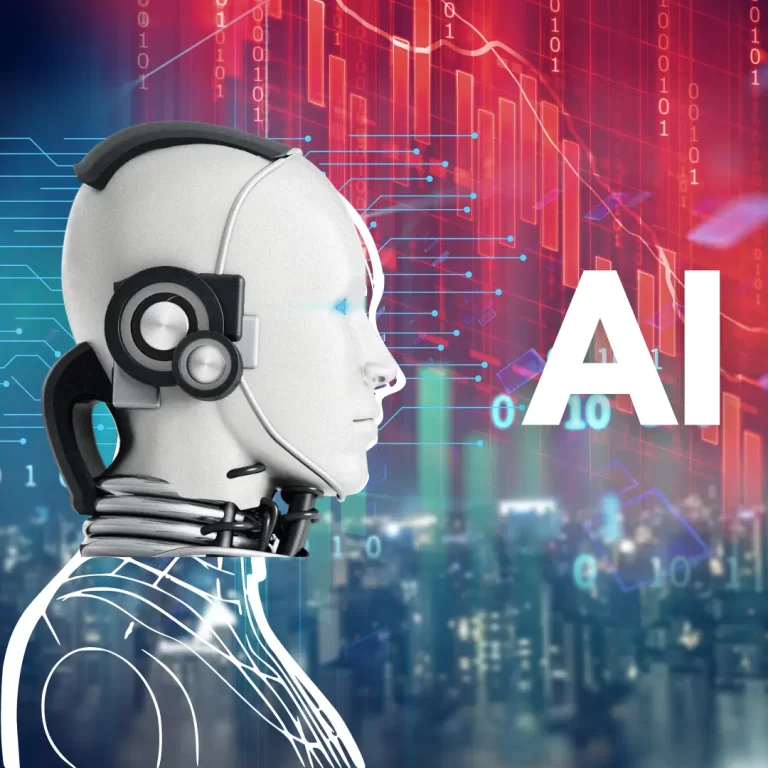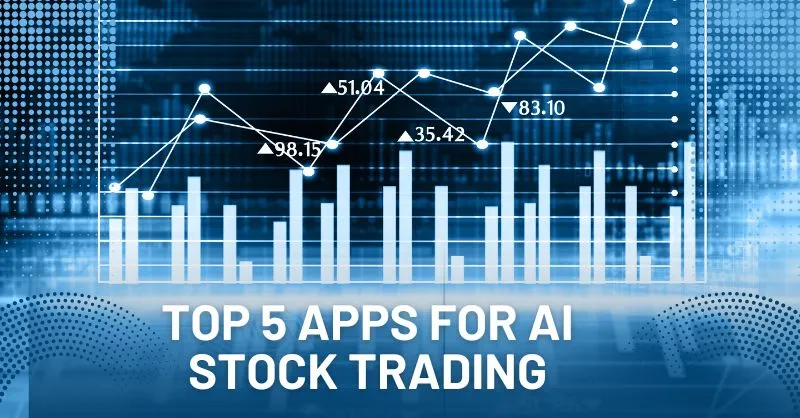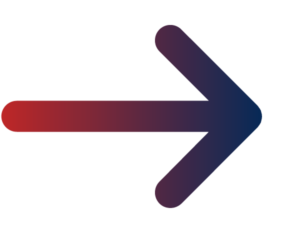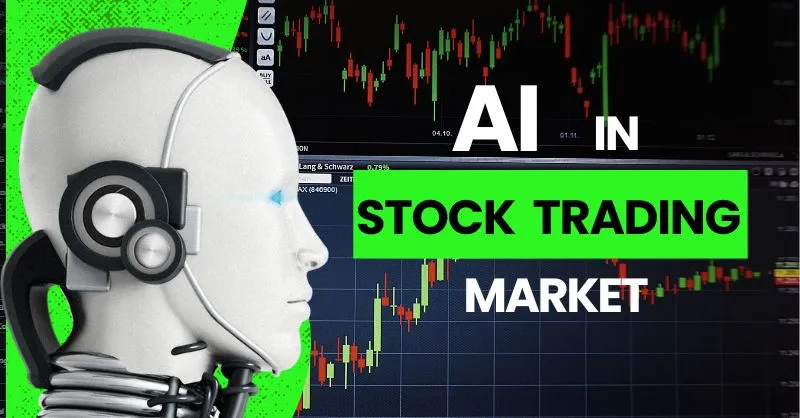Role of Artificial Intelligence in Stock Trading Marketplace
The incorporation of artificial intelligence (AI) into stock trading has become a game-changer in the current fast-paced financial landscape, transforming the way market players make investment decisions and manage their portfolios.
The markets are a flurry of activity every day, seven days a week. Since the advent of AI technology, stock trading, which was previously only dependent on human intuition and experience, has experienced a significant transformation.
Imagine a world where machines that can process enormous volumes of data in milliseconds are handling sophisticated trading choices that were previously relied on human judgment. AI has completely changed the stock trading industry.
We will go into the intriguing history of AI integration in the stock trading industry in this blog post.
AI in Stock Trading: What Is It?
The application of artificial intelligence (AI) in stock trading involves using technologies like machine learning and data analysis algorithms to help traders make well-informed decisions while purchasing, disposing of, and managing financial assets.
AI systems find trading opportunities and manage risk by utilizing a massive quantity of market data, including historical trends, current news, and other factors.
A growing number of companies are able to carry out trades promptly, adjust to shifting market conditions, and provide traders and investors with insightful information thanks to the growing demand for stock trading apps.
The goals of AI in stock trading are process automation and enhanced decision-making. Additionally, portfolio management is optimized.

Current Market Statistics for Stock Trading
The use of AI in stock market analysis has produced previously unheard-of improvements in data processing and decision-making. Unlike statistical models, AI algorithms can swiftly analyze large amounts of data and provide meaningful information.
In their pursuit of a competitive edge, financial institutions were eager to embrace this technology and turn into early adopters. By 2028, online commerce will have a $12 billion market value. AI is expected to have a major impact on this increase.
It is anticipated that the value of the world’s equities market will increase from 65,04 trillion dollars in 2013 to 98.5 trillion dollars in 20222.
The total market capitalization of indigenous companies listed on global stock exchanges as of July 2023 is 112 trillion US dollars.
Global equity trading is expected to increase from little over $25 trillion in 2009 to over $32 trillion in 2020.
Three-quarters of the worldwide market value, or over $31 trillion, is held by the U.S. stock markets, NASDAQ and NYSE.

AI's Place in the Stock Trading Sector
A significant and expanding component of the stock trading industry is artificial intelligence. It has altered the functioning of the financial markets, enabling traders and investors to carry out their transactions more successfully and with greater knowledge. The trading software development company provided the following important details about the roles that AI plays in the stock market.
- Algorithmic Trading
AI-driven algorithms can be used to implement high-frequency or quantitative trading strategies.These algorithms have the capacity to quickly execute transactions, spot patterns in vast volumes of data in real time, and evaluate data in ways that human traders cannot. Additionally, AI in stock market trading systems are able to modify their trading tactics in response to shifting market conditions.
- Predictive Analytics
AI models such as machine learning or deep learning are used to predict future movements in stock prices. These models use historical data, news sentiments, macroeconomic indicators and other factors to make predictions. Predictive analytics helps traders make informed decisions on when to buy and sell stocks.
- Risk Control
AI can be used by traders and portfolio managers to analyze and manage risk. Potential hazards, portfolio exposure, and market volatility can all be determined using risk prediction models. Armed with this information, investors may make better informed decisions about asset allocation, hedging, and other strategies.
- Emotional Diagnostics
Sentiment research techniques driven by artificial intelligence (AI) comb through news, social media, and other information sources to find out what the public thinks about individual stocks or the market as a whole. Trading professionals can forecast changes in the market by understanding investor emotion.
- Optimization of Portfolios
By considering variables including market conditions, return aim, and risk tolerance, AI can optimize portfolios. The optimal asset allocation and investment plan to attain the intended outcomes can be suggested by these AI stock trading systems.
- Market Monitoring
Exchanges and regulators may utilize artificial intelligence (AI) to monitor trade activity for illegal activities including insider trading and market manipulation. Artificial Intelligence surpasses traditional approaches in identifying irregular trading trends.
- Quantitative Research
Artificial intelligence (AI) provides tools that evaluate big datasets, test theories, and offer analytical assistance to assist quantitative analysts in creating trading strategies. Patterns and linkages that would not have been obvious in traditional analysis might be found with machine learning
How Does AI Help in Stock Trading?
We will talk about the applications of AI in stock trading marketplaces in this part. So let’s examine this:
Comprehensive Data Examination
Because AI algorithms can process massive volumes of financial data quickly, investors can make well-informed judgments. Using AI in stock trading and market analysis approaches, it might occasionally be challenging to obtain and analyze the vast amount of available data. This may result in bad decisions or lost chances.
However, AI can swiftly comb through enormous databases to find patterns and extract useful information that could affect an investor’s approach. Investors can now more correctly forecast market AI trends, assess risk concerns, and track company performance with the use of AI-powered tools.
Trading Algorithms
Artificial Intelligence has revolutionized algorithmic trading, often known as quantitative trading. Algorithmic trading executes deals quickly and frequently by using mathematical models and pre-established procedures.
In order to make snap judgments on trading, artificial intelligence (AI) systems can examine market data, news sentiment, and other variables. These algorithms have the ability to better manage risk and profit from short-term price fluctuations and market inefficiencies. Algorithmic trading driven by AI has gained popularity among institutional investors and hedge funds.
Risk management and fraud detection
AI-powered stock trading systems are advancing significantly in terms of risk management and fraud detection. More quickly than people, AI computers can identify fraudulent activities, odd trading patterns, and potential market manipulations.
According to an AI development business, by monitoring vast volumes of data and using AI to complicated stock trading algorithms, systems can identify suspicious activity in real-time. In doing so, market players and regulators preserve the trust of investors and the integrity of the market.
Availability of Cutting-Edge Investment Techniques
The ability of AI to give investors access to sophisticated investment strategies has a significant impact on the stock market. Before artificial intelligence (AI), institutional investors and hedge fund traders were the main users of complex methods and cutting-edge techniques.
Retail investors can now access advanced strategies thanks to AI-driven investment platforms. These systems create customized investment portfolios for each user based on their risk tolerance, financial goals, and market conditions using AI-powered stock trading algorithms. AI-powered insights give investors access to a wider range of options.
Top 5 Apps for AI Stock Trading
Numerous online trading platforms, such as the eToro app and Webull, are performing well in the market. Nonetheless, we have enumerated the most well-liked one for your consideration.

1. The TrendSpider
AI-powered stock trading systems are advancing significantly in terms of risk management and fraud detection. More quickly than people, AI computers can identify fraudulent activities, odd trading patterns, and potential market manipulations.
According to an AI development business, by monitoring vast volumes of data and using AI to complicated stock trading algorithms, systems can identify suspicious activity in real-time. In doing so, market players and regulators preserve the trust of investors and the integrity of the market.
2. Candlestick
A smartphone software called Candlestick software is intended for stock market aficionados and traders. It provides visually appealing real-time charts that display stock values. This aids in trend analysis for users.
Black Box Stocks are an effective instrument that provides traders and investors with up-to-date information and analysis. Features of the tool include monitoring options flow, live stock market scans, and notifications for anomalous options behavior. Prior to beginning development, you must ascertain how much it will cost to create an app for cryptocurrency trading.
Users can obtain comprehensive data regarding options, stocks, and cryptocurrency. They are able to make wise selections as a result. The app’s in-house algorithms provide AI trading signals by analyzing market data.
4. Q.ai
Q.ai is a financial software that offers tools for managing your portfolio and AI-driven insights to investors. With real-time market data, personalized financial advice, and automatic trading features, this is the greatest AI software for stock trading.
Users can modify their portfolios to reflect their individual risk tolerance and financial goals. The AI investing program assists users in making wise decisions by analyzing news sentiment and market movements using cutting-edge machine learning techniques.
5. OnFinance
The “OnFinance app” is an all-inclusive financial management solution. It gives customers the ability to successfully manage their funds. It includes functions including investment tracking, spending classification, and budget tracking. With the assistance of investment app development service providers, the firm can add features.
It helps people achieve their financial goals and simplifies financial planning with its intuitive structure. Real-time data on stock portfolios, cryptocurrency investments, and financial wellness is available on OnFinance.
Conclusion
Trading and analysis on the stock market are being revolutionized by artificial intelligence. By using AI technologies like sentiment analysis and machine learning, investors may enhance their trading strategies and make better decisions.
As AI continues to advance, investors should expect increased opportunity, efficiency, and accuracy in the realm of volatile stock markets. As AI advances, it is anticipated that its influence on the financial industry will increase, impacting stock analysis and trading in the future.
It is imperative that you get in contact with the top mobile app development business if you’re interested in developing an AI app so that you can talk costs and plan estimates in more detail.
Commonly Asked Questions

It can be difficult to develop a mobile stock trading software with AI integration. Nonetheless, you can quickly make an app by using the following instructions:
• Data Collection: Compile current and historical market data.
• Algorithm Development: Provide trading algorithms powered by AI.
• Machine Learning Models: Utilize historical data to train models.
• Backtesting: Assess the efficiency of an algorithm.
• Integration: Give trading systems artificial intelligence.
• Real-time Analysis: Make it possible to continuously analyze market circumstances.
• Optimization: Improve algorithms in response to input and outcomes.
Hiring mobile app developers can be expensive depending on a number of variables. Considerations include project complexity, skill level, and location, but it might cost anywhere from $15 to $25 per hour or more.
Based on past data and market trends, artificial intelligence (AI) can forecast stock values; however, it is not perfect and is susceptible to market fluctuations.
The complexity and extent of artificial intelligence initiatives determine a wide range of construction costs. While large-scale projects can cost $25000, smaller ones may start at $10000 to $15,000. Development hours, knowledge, data collection, and infrastructure requirements are some of the variables.
Disclaimer: Above all information is for general reference only and sourced from internet, before making any kind of decision please visit the authorized websites of authorities and service providers.

